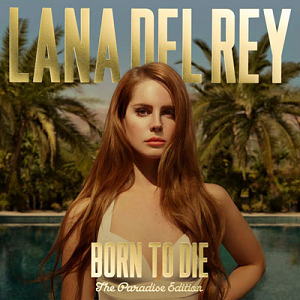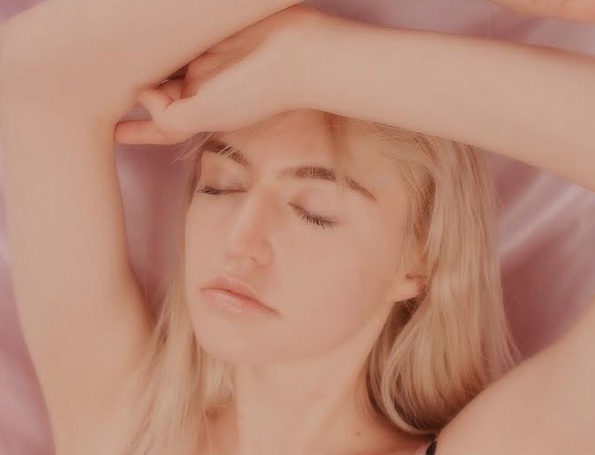
Lana Del Rey
Born to Die: The Paradise Edition (Interscope/Polydor)
Sophia Marie in Lana Del Rey Paradise: Los Angeles singer and songwriter Sophia Marie told us about her love for a Lana Del Rey gem.
My favorite album is none other than Lana Del Rey’s Born to Die: The Paradise Edition. Who else better to immerse you into the mind of an ambitious, wild city girl? The album is the narrative of the girl you want yourself to be, the one you want to end up saying was you when you’re old and telling stories about your life. All the crazy experiences.

(Interscope/Polydor)
The “Winin’ and dinin’, drinkin’ and drivin’, excessive buyin’, overdose and dyin’ on our drugs, and our love, and our dreams, and our rage” she alludes in “National Anthem.” All the self-importance that is not, actually, unfounded. All the recklessness, the running from cops in bikinis, the getting heartbroken by men but because they loved you in the first place. The being in a handsome man’s arms at the Chateau Marmont on Sunset Boulevard. The title track “Born to Die” asks you to “take a walk on the wild side,” “to kiss in the pouring rain.”
The personage who implores you is the kind of femme fatale you want lovers and peers to see you as, the one who inspires either jealousy or attraction. Doing things that aren’t necessarily “right,” but enjoying them all the same. In “Diet Mountain Dew,” she gives her hook: “you’re no good for me, but baby I want you” and describes her lover as “screwed up and brilliant,” in “Million Dollar Man.”
But the album also gives truth about the harm in this emotional volatility, this lack of stability, how horrible it can feel. While she sings about the highs of finally achieving a lover in “Radio” — “baby love me cuz I’m playing on the radio,” she also describes complete teenage heartbreak: “mascara running down her little Bambi eyes; Lana, how I hate those guys!” She describes the negativity in equating happiness with male validation in “Without You”: “I’m nothing without you; all the dreams and all the lights mean nothing without you.”
Lana is known to romanticize, but, rightly, she contrasts it with an opposite and equal tragedy. She tells you that even those seemingly care-free girls are not, in fact, free from misery. That you shouldn’t aspire to live the life the day because you simplify it as “fun.” In fact, these types often long for the very mundanity so many take for granted. Lana dispels the romanticism and myth of Hollywood, instead, showing it to be dirty and scummy. “Carmen” describes a washed-up starlet celebrity walking the streets at night: “you don’t want to get this way: famous and dumb at an early age.” It’s the bad side of Los Angeles, the chasing of the industry through immoral and desperate means, of giving up everything to pursue the dream that ultimately leaves you unhappy.
The album, however, is perhaps best encapsulated in the track “Ride” that is her most autobiographical. She perfectly describes the perpetual nomad, the one who is never satisfied, who only finds happiness when she is on the open road, the one who’s got a “war in (her) mind” and, so, just “rides.” Lana knows many people won’t understand this sentiment–she admits that she is a girl with no “moral compass pointing north, no fixed personality–but to those that do, the validation, the acknowledgement that she sees us means everything. Yes, she is “fucking crazy” as she calls herself in the monologue preceding the track, but, still, she, and the audience who listen to the lyrics and see themselves in them, are “free.”
Sophia Marie in Lana Del Rey Paradise: Sophia Marie’s new single “Venice Beach to D.C.” is out now.
Advertising disclosure: We may receive compensation for some of the links in our stories. Thank you for supporting LA Weekly and our advertisers.

